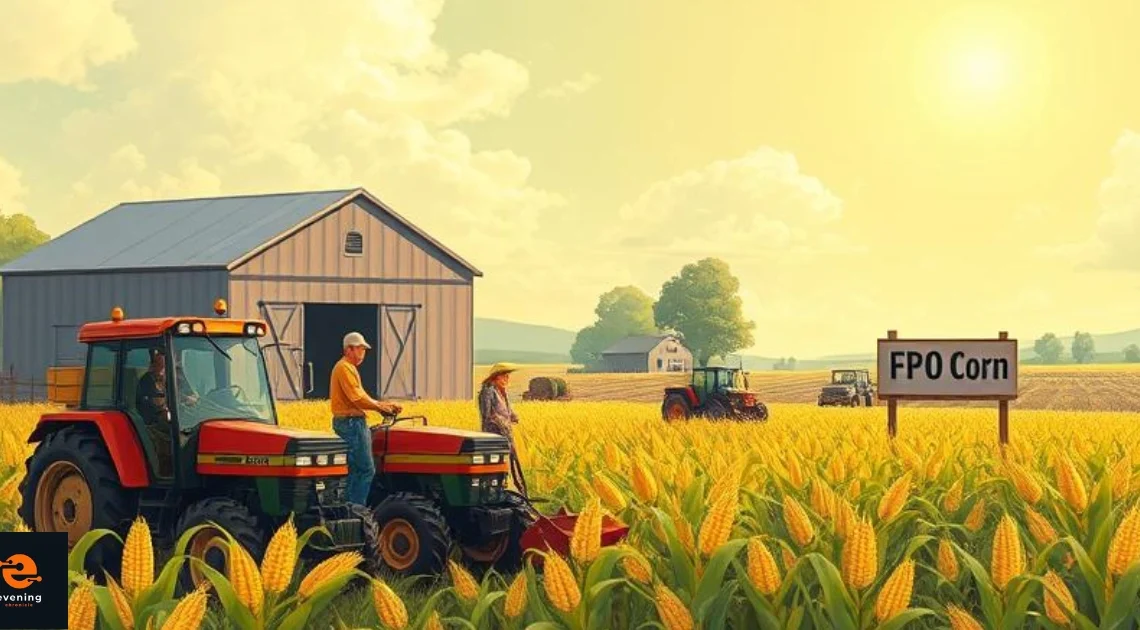In the complex world of agriculture, farmers often face significant challenges such as price volatility and supply chain issues. These problems can make it difficult for farmers to achieve economic stability and sustainable growth. However, there is a solution that has been gaining traction: FPO Corn. FPO, or Farmer Producer Organizations, are transforming the agricultural landscape by offering a collective approach to farming that enhances efficiency, sustainability, and profitability. In this comprehensive guide, we will explore the significance of FPO Corn, its benefits, and how it can revolutionize the future of agriculture.
Understanding FPO Corn
1. What is an FPO?
An FPO, or Farmer Producer Organization, is a collective of farmers who come together to pool their resources, knowledge, and efforts to improve their agricultural practices and market access. FPOs aim to enhance the economic and social well-being of farmers by providing them with better opportunities and support systems.
2. Importance of FPO Corn in Agriculture
It plays a crucial role in modern agriculture by addressing several key challenges faced by farmers. Here are some of the primary benefits:
3. Promoting Sustainable Practices
FPOs encourage sustainable farming practices that not only protect the environment but also ensure long-term productivity. By adopting methods such as crop rotation, organic farming, and integrated pest management, it helps reduce the environmental impact of agriculture.
4. Enhancing Income for Farmers
One of the main goals of FPOs is to increase farmers’ income by improving market access and negotiating better prices for their produce. By working together, farmers can achieve economies of scale, reduce costs, and command higher prices for their corn.
5. Reducing Dependency on Intermediaries
FPOs help farmers bypass middlemen, who often take a significant share of the profits. By directly connecting farmers to markets, it ensures that farmers receive a fair price for their produce and retain more of the revenue.
Comparison with Conventional Corn
1. Market Dynamics
It operates within a different market dynamic compared to conventional corn. While conventional corn farming often involves individual farmers facing market fluctuations and price volatility, it leverages the collective strength of the organization to stabilize prices and ensure consistent demand.
2. Quality and Certification
FPOs often focus on producing high-quality corn that meets specific standards and certifications. This not only enhances the marketability of the corn but also opens up opportunities for premium pricing and access to niche markets.
3. Risk Management
FPOs provide a support system for farmers to manage risks more effectively. Through collective bargaining, shared resources, and access to information, it helps farmers mitigate risks associated with weather, market fluctuations, and other uncertainties.
Case Studies: Successful FPO Corn Initiatives
1. India’s Farmer Producer Organizations
In India, FPOs have shown significant success in improving the livelihoods of farmers. For example, the Indian government has been actively promoting FPOs through various schemes and initiatives, leading to increased productivity and income for farmers.
2. The U.S. Perspective
In the United States, similar initiatives have been implemented to support smallholder farmers. These programs focus on sustainable practices, market access, and financial support to enhance the profitability and sustainability of corn farming.
3. The Future of FPO Corn
As the world moves towards more sustainable and efficient agricultural practices, it is poised to play a significant role in the future of farming. By leveraging technology, improving market access, and promoting sustainable practices, FPOs can help farmers thrive in a changing world.
Conclusion
It represents a transformative approach to agriculture that addresses many of the challenges faced by farmers today. By promoting sustainable practices, enhancing income, and reducing dependency on intermediaries, FPOs offer a promising solution for the future of farming. We hope this guide has provided valuable insights into the significance and benefits of it. If you have any questions or want to share your own experiences with it, leave a comment below. Don’t forget to share this article with your network and explore related topics to stay informed and inspired. Together, let’s build a more sustainable and prosperous future for agriculture.
CTA: “Are you a farmer looking to maximize profits and sustainability? Join an FPO today and take control of your market access, pricing, and growth. Explore how FPO Corn can revolutionize your farming success—start now!”
Frequently Asked Questions (FAQs) about FPO Corn
1. What is an FPO?
An FPO, or Farmer Producer Organization, is a collective of farmers who collaborate to enhance their agricultural practices, market access, and economic stability. FPOs aim to improve the livelihoods of farmers by providing better opportunities and support systems.
2. How does FPO Corn benefit smallholder farmers?
It helps small farmers cut costs, access modern technology, secure better market prices, gain financial support, and share knowledge for improved farming.
3. Is FPO Corn environmentally sustainable?
Yes, it promotes environmentally sustainable practices. FPOs often encourage methods such as organic farming, integrated pest management, and sustainable water use, which help reduce the environmental impact of agriculture.
4. How can farmers join FPO Corn?
Farmers can join FPO Corn by connecting with local FPOs, exploring government programs, and engaging with agricultural communities.
5. What is the future of FPO Corn?
The future of FPO Corn is promising, with a growing focus on sustainability and efficiency. FPOs will drive technological innovations, expand market access, promote eco-friendly farming, and benefit from supportive government policies.

